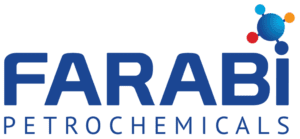
Decoding Google Algorithm: Building a Google Search Ranking Foundation
In SEO, the understanding of google algorithm is paramount. The google search ranking of websites for various search queries has been influenced by a number of factors in Google’s algorithm. While it is complex and continually updated, webmasters need to be aware of such changes to ensure that their strategies are up-to-date. The key components within the algorithm include page relevance, content quality, user experience and backlink profiles.
Keyword Research and Optimization: Unlocking your audience
Successful SEO starts with keyword research and optimization. Identifying appropriate keywords for your content guarantees you target the right audience. Utilize resources such as Google Keyword Planner, SEMrush or Ahrefs to get related keywords which have manageable competition levels. Integrate these phrases naturally into your text’s body, metadata and titles which will help in increasing visibility on SERPs. Do not overuse keywords in your writing because it may result in penalties and reduced rankings instead.
Crafting High-Quality Content: Engaging Your Audience and Search Engines
The backbone of SEO is high-quality content. Google prefers informative, engaging, and valuable copy that is useful to users. Creating well-researched articles, blog posts, videos or infographics that address the needs and queries of your audience is what this means. Avoid duplicate content because it will pull down your site’s ranking; besides, uniqueness counts a lot. Construct full-fledged pieces with visual elements inside to support your reader’s interest.
On-Page SEO: Optimizing Every Element for Better Rankings
On-page SEO refers to optimization of various elements within web pages in order to improve their visibility on search engines. It encompasses title tags, meta descriptions, header tags (H1, H2 etc.) and image alt texts. Properly formatted URLs; internal linking and easily navigable site structure are also important aspects to have in mind. By utilizing schema markups as well as HTML best practices ensure your content is accessible by both users and search engines alike since it should be readable too.
Off-Page SEO: The Authority of a Site Beyond Itself
The reality is that off-page SEO concentrates on how credible or popular your website appears through the use of external methods. Examples include social media advertising, guest blogging, outreach to influencers and mentions by famous people. When Google ranks websites it considers trustworthy backlinks from established websites as positive factors. Sharing with your online community and providing valuable content on relevant platforms can improve the site’s off-page SEO.
Utilizing Backlinks: External Links for Higher Rankings
Backlinks are links from external sites that direct users to your site. They are an important aspect of off-page search engine optimization and can have a great impact on google search ranking. Good quality backlinks from influential, useful websites are what indicate trustworthiness of content to Google. You should strive at building natural backlinks which could be done ethically like content creation, outreach and collaborations. Avoid buying backlinks as it can lead to penalties.
Improving Website Speed: Moving Faster to Improve Rankings
A lot of search engine optimization and a ranking factor is website speed. Your site loads slowly, annoying users and increasing the bounce rate, which affects your rankings negatively. Use tools like Google Page Speed Insights or GTmetrix to check how your site performs and find areas that need improvement. To make sites load faster, you can optimize images, minify CSS and JavaScript, leverage browser caching and use Content Delivery Network (CDN) among other things.
Making Sure Visitors Explore Your Site More: Enhancing Their Experience
The retention of visitors and improving on your google search ranking are dependent upon user experience (UX). Intuitive navigation, fast loading times, relevant content or mobile-friendly design are all components of a good UX. Make sure that your website is user friendly with great visual appeal plus it should have a clear call to actions and minimal distractions. User behavior analysis through Google Analytics will show how people interact with your site leading to improved insights about what pages need improvements for example.
Mobile Optimization: Meeting Mobile Users’ Needs for Better Rankings
With the rising use of mobile internet, mobile optimization has become vital. Mobile-first indexing from Google implies that your site’s mobile version is considered as the main one for ranking purposes. Ensure you have a responsive website with a seamless experience across all devices. Make sure that you have used a mobile friendly design, large and readable text, easy navigation and fast load times.
Regular Content Updates: Keeping Your Website Fresh and Relevant
Regularly updating your content shows search engines that your website is both active and relevant. Adding new content regularly, keeping existing posts updated and removing old contents can improve your rankings. Develop a content calendar so that you plan for updates in advance as well as organising them to ensure there is always something new to read every day. To maintain audience interest and keep them enlightened, utilize blog posts among other forms of news articles or releases.
















